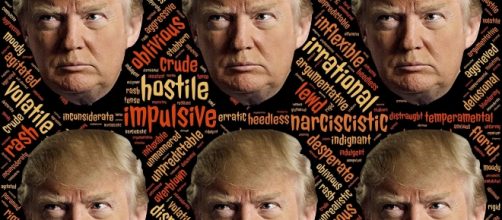People who have valid entry visas are being detained at John Fitzgerald Kennedy International Airport because of President Trump's Executive Order banning the issuing new visas for anyone from Syria.
Rush to keep promises
Laws seldom take effect immediately, giving time for detailed directions on how to implement them so there isn’t chaos when people try to implement what they think the law or Executive Order means. Different rules can be applied in different airports, border crossings, or seaports - any legal port of entry into the United States if an Executive Order takes immediate effect..
NY JFK detentions
Twelve people were detained at the New York airport, including one who worked for the US Army as a translator. All had valid visas. Immigration agents decided the Executive Order also voided existing visas.
Hameed Khalid Darweesh, a long-time US Army employee, was released after 12 hours detention, but only after his lawyer, Mark Doss filed a Federal lawsuit in the middle of the night. Mr Darweesh appeared on camera and told viewers eleven other individuals were still being detained held as of noon.
The Administration may not have considered that many people from those 7 countries have worked for the US and, for that reason, are either terrorist targets or in some instances are sought by the current governments because they aided the US under the promise that they would be protected.
Those people still hold passports from those countries but if deported they may face death or imprisonment.
The people who were detained at JFK boarded the aircraft on Holocaust Memorial Day, before the Presidential decree was signed. Holocaust Memorial Day is the day set aside to recognise the shame which the US government bears for refusing to accept Jewish refugees who wanted to leave Nazi Germany before WWII.
Legal questions
One of the demonstrators said, “this harkens back to the most shameful acts of the US Government from the internment of Japanese American citizens, even those born in the US, during WWII to the Jews who died because they weren’t permitted entry to the US as religious refugees.
Legal action against this ban on Muslims entering the country has come on two fronts. First is it a violation of the First Amendment which prohibits religious discrimination? And second, does this order require or imply the suspension of habeas corpus which is also unconstitutional.
Habeas Corpus is a legal writ (written demand) which is filed on behalf of someone who has been arrested or detained. The writ requires that the person be brought before a court as quickly as practical at which point the person or agency holding the individual must prove to the judge that they have the right to hold that individual. That right includes the question of whether the arrest itself was justified.
Just because President Trump signs an Executive Order that doesn’t make the action constitutional.
Green Card holders
Another looming problem is the initial decision of the Department of Homeland Security to refuse entry to Green Card holders. As of Saturday noon, the DHS policy based on Friday’s Executive Order is that people holding valid work permits (known as Green Cards) allowing them to legally hold jobs in the US but whose passports are from one of the 7 countries currently under the Presidential ban, will not be permitted to re-enter the US. CNN is reporting that lawyers are advising any Green Card holders from those countries not leave the country because they may be denied entry.
International consequences
Iran has already reciprocated by banning entry of any Americans to that country because of the Presidential order banning Muslims wanting to enter the US from Iran and 6 other countries.
An as yet unanswered question is whether this Iranian ban will be applied to any US citizen who is also part of the international inspection teams which are a critical part of the Iranian nuclear deal. Other countries are likely to follow suit.

